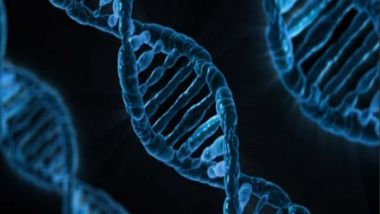New Haven (Connecticut) [US], November 5 (ANI): During a new study, researchers identified almost two dozen genes that contribute to heart defects by studying genetic data from people born with congenital heart disease or autism.
Hongyu Zhao of Yale University and colleagues developed a new algorithm to analyze genetic data from related conditions, which they describe in a paper published in the journal 'PLOS Genetics'.
Also Read | Andhra Pradesh: Seven Dead in Two Separate Road Accidents on NH44 in Anantapur.
Multiple diseases that start early in life appear to be linked to mutations in the same genes. Recent research looking at de novo mutations, new mutations that pop up in children that were not present in the parents, has demonstrated a connection between congenital heart defects and autism. However, sequencing de novo mutations are expensive, so small studies of individual diseases have limited power to identify genes that increase a person's risk of the disease.
In the new study, researchers developed an algorithm called M-DATA (Multi-trait De novo mutation Association Test with Annotations) that combines sequencing data from people with related conditions to identify genes that contribute to disease. They applied the new method to genetic data from people with congenital heart disease or autism and successfully identified 23 genes for congenital heart disease, including 12 that were previously unknown.
The researchers conclude that M-DATA is more effective at identifying genes that increase a person's risk than analyses focusing on a single disease. This is because instead of analyzing a small number of genomes from affected individuals, M-DATA analyzes a larger number of combined genomes from multiple groups of people. The new method may help researchers identify previously unknown genes linked to disease and improve our understanding of the cause and potential treatment for different conditions.
Zhao adds, "By jointly analyzing de novo mutations from congenital heart disease (CHD) and autism, we identified novel genes that may play an important role in explaining the shared genetic etiology of CHD and autism."
Yuhan Xie, the lead student of the research, says, "As a biostatistics student, it's very motivating to find what could be meaningful to the patients and their families." (ANI)
(The above story is verified and authored by ANI staff, ANI is South Asia's leading multimedia news agency with over 100 bureaus in India, South Asia and across the globe. ANI brings the latest news on Politics and Current Affairs in India & around the World, Sports, Health, Fitness, Entertainment, & News. The views appearing in the above post do not reflect the opinions of LatestLY)













 Quickly
Quickly


